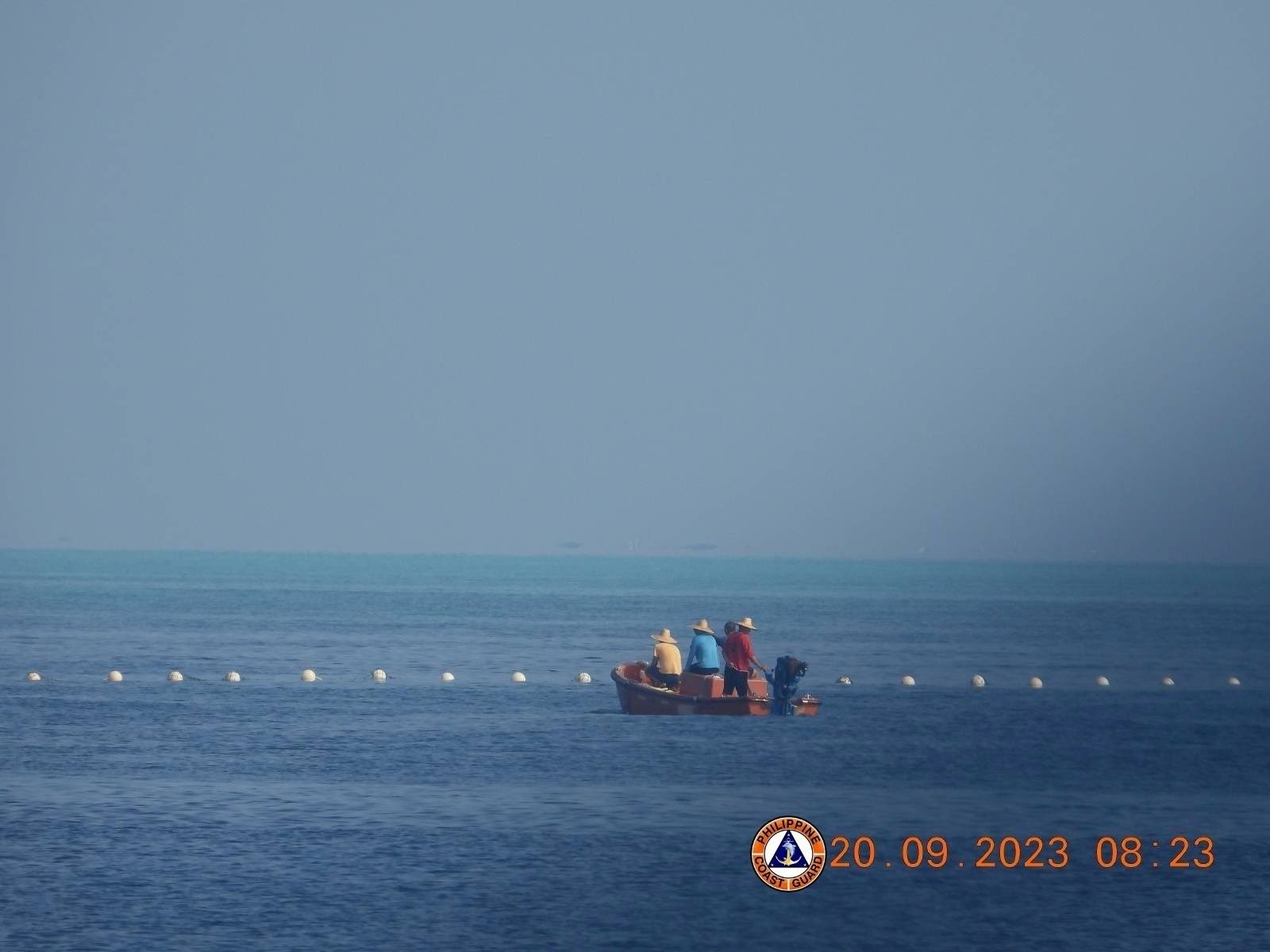SUMMARY
This is AI generated summarization, which may have errors. For context, always refer to the full article.

MANILA, Philippines – Days after China’s Southern Theater Command claimed a Philippine Navy vessel “intruded” in waters near Bajo de Masinloc in the West Philippine Sea, the Philippines’ Department of Foreign Affairs (DFA) said it was “China that is intruding into Philippine waters.”
“Bajo de Masinloc is an integral part of the Philippine territory and over which the Philippines has sovereignty and jurisdiction. The 2016 Arbitral Award upheld its status as a high-tide feature that has no exclusive economic zone (EEZ) or continental shelf of its own as opposed to an island as defined under Article 121(3) of the United Nations Convention on the Law of the Sea (UNCLOS),” said the department in a statement released Thursday, November 2.
The 2016 Arbitral Award, brought about by a 2013 challenge filed by the Philippines against China, ruled among others that the claim of historic rights to resources within the sea areas falling within China’s then “nine-dash line” had no basis in law.
In that award, Bajo de Masinloc or Scarborough Shoal was identified as a high-tide feature as opposed to an island, meaning it did not have its own EEZ.
The tribunal also said the shoal was a common fishing ground for Filipino, Chinese, and Vietnamese which means that no country should be barring small-scale fishing in the area.
Yet China has, as recently as September 2023, barred Filipino fishermen from enjoying the bounties and safety the lagoon of Bajo de Masinloc has to offer.
“It is China that is intruding into Philippine waters. Chinese authorities are reminded that its apparent exercise of maritime law enforcement powers, interference with Philippine vessels, harassment and intimidation of Filipino fisherfolk, or any other activity that infringes upon the Philippines’ sovereignty, sovereign rights, and jurisdiction in Bajo de Masinloc and the West Philippine Sea are violations of international law, particularly UNCLOS and the Arbitral Award,” said the DFA.
“The Philippines’ conduct of maritime patrols in the waters around Bajo de Masinloc is a legitimate and routine act of a sovereign country in its territory and territorial sea and is part of the Philippines’ administrative responsibility. There is no obligation for the Philippines as the sovereign state to seek the approval of another when navigating its own territorial sea,” added the DFA.
Chinese ships – from its China Coast Guard and Chinese Maritime Militia fleet – are constantly in the shoal. The Philippines has said that these ships should leave.
Bajo de Masinloc is one of several areas in the West Philippine that’s been a flashpoint for tensions between Manila and Beijing.
China, which claims practically the entire South China Sea as its own, has refused to recognize the 2016 Arbitral ruling. It did not participate in the arbitration.
Beijing’s ships have also routinely harassed and blocked Philippine vessels from resupply missions to the BRP Sierra Madre, Manila’s outpost in Ayungin Shoal or Second Thomas Shoal. On October 22, a week before China’s claim that a Navy vessel “intruded” in the waters off Bajo de Masinloc, Chinese ships collided with Philippine boats during a resupply mission to Ayungin.
Manila has said China’s “dangerous manuevers” were to blame, while Beijing has insisted it was the Philippines who was the provocateur. – Rappler.com
Add a comment
How does this make you feel?
![[ANALYSIS] BRP Sierra Madre and the complexities of geopolitics in the West Philippine Sea](https://www.rappler.com/tachyon/2023/08/BRP-Sierra-Madre-and-the-complexities-of-geopolitics-in-the-West.jpg?fit=449%2C449)











There are no comments yet. Add your comment to start the conversation.